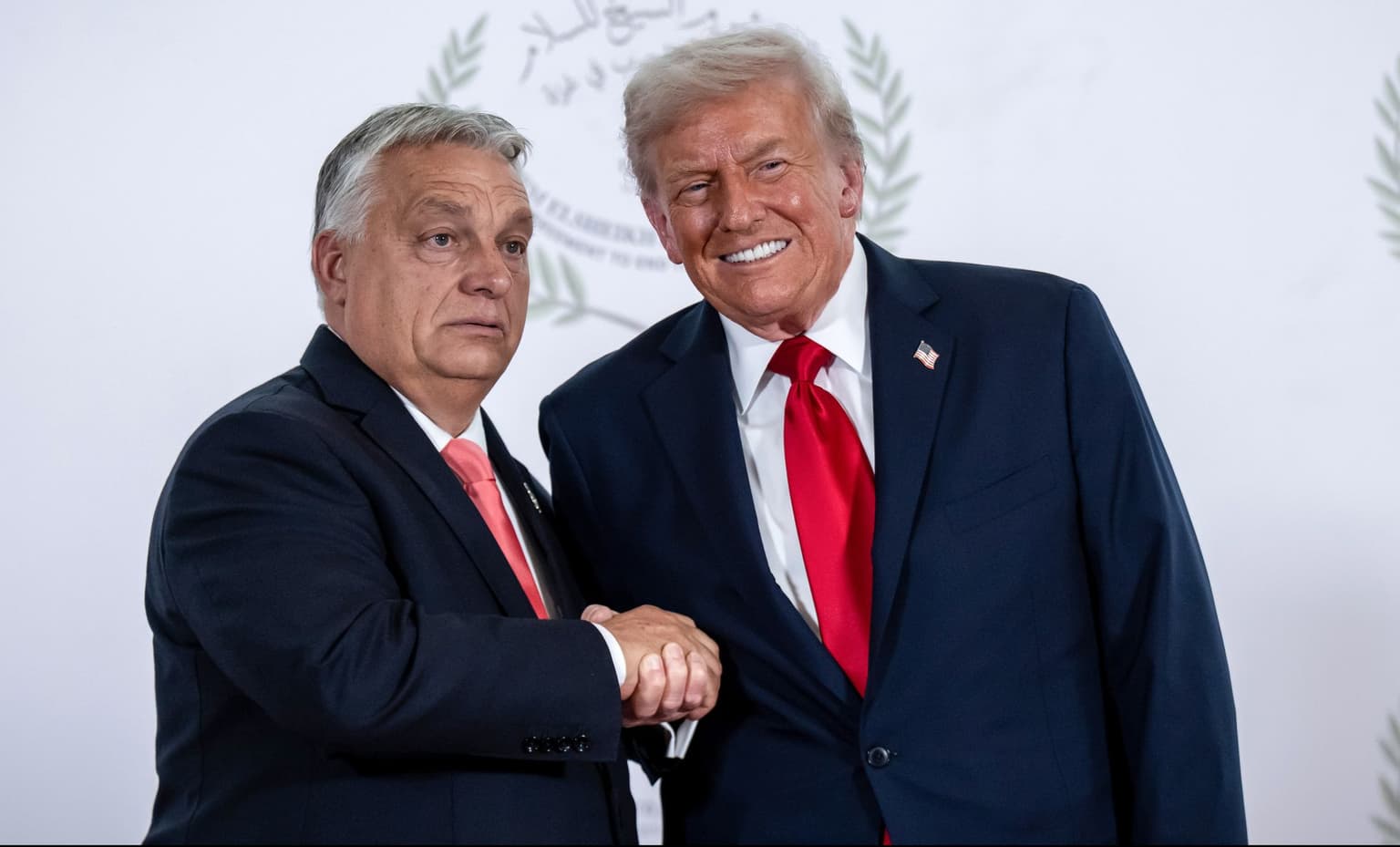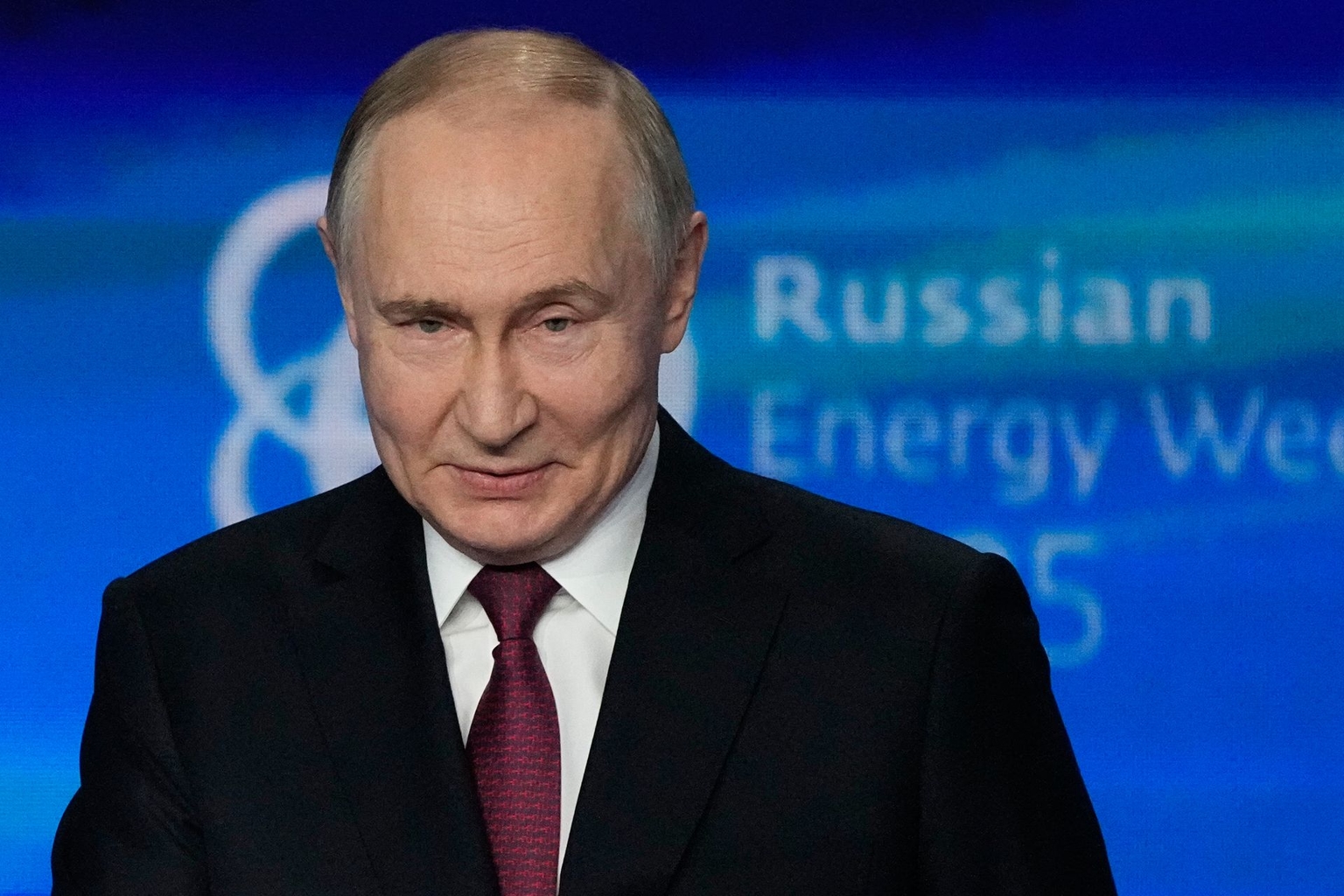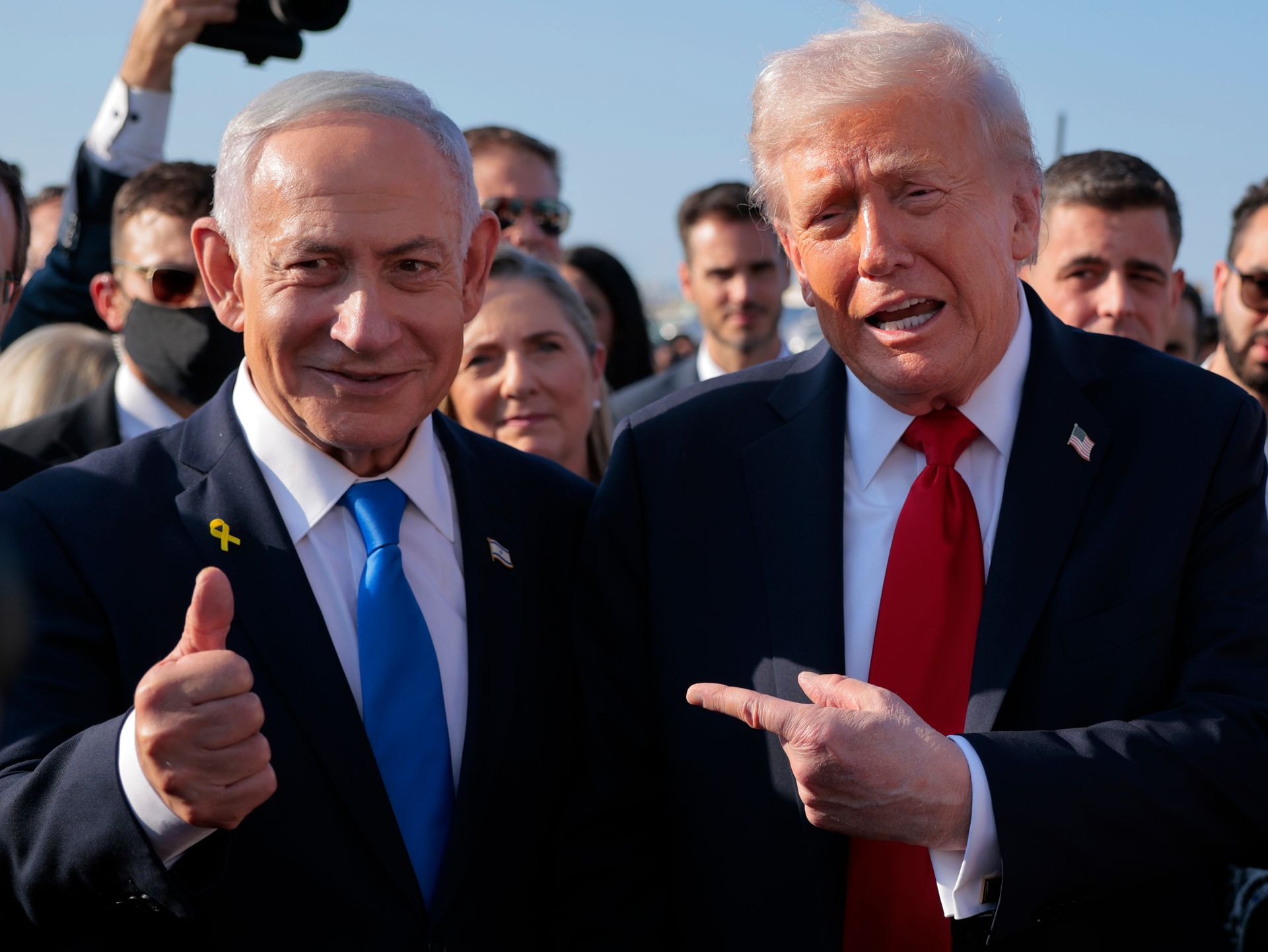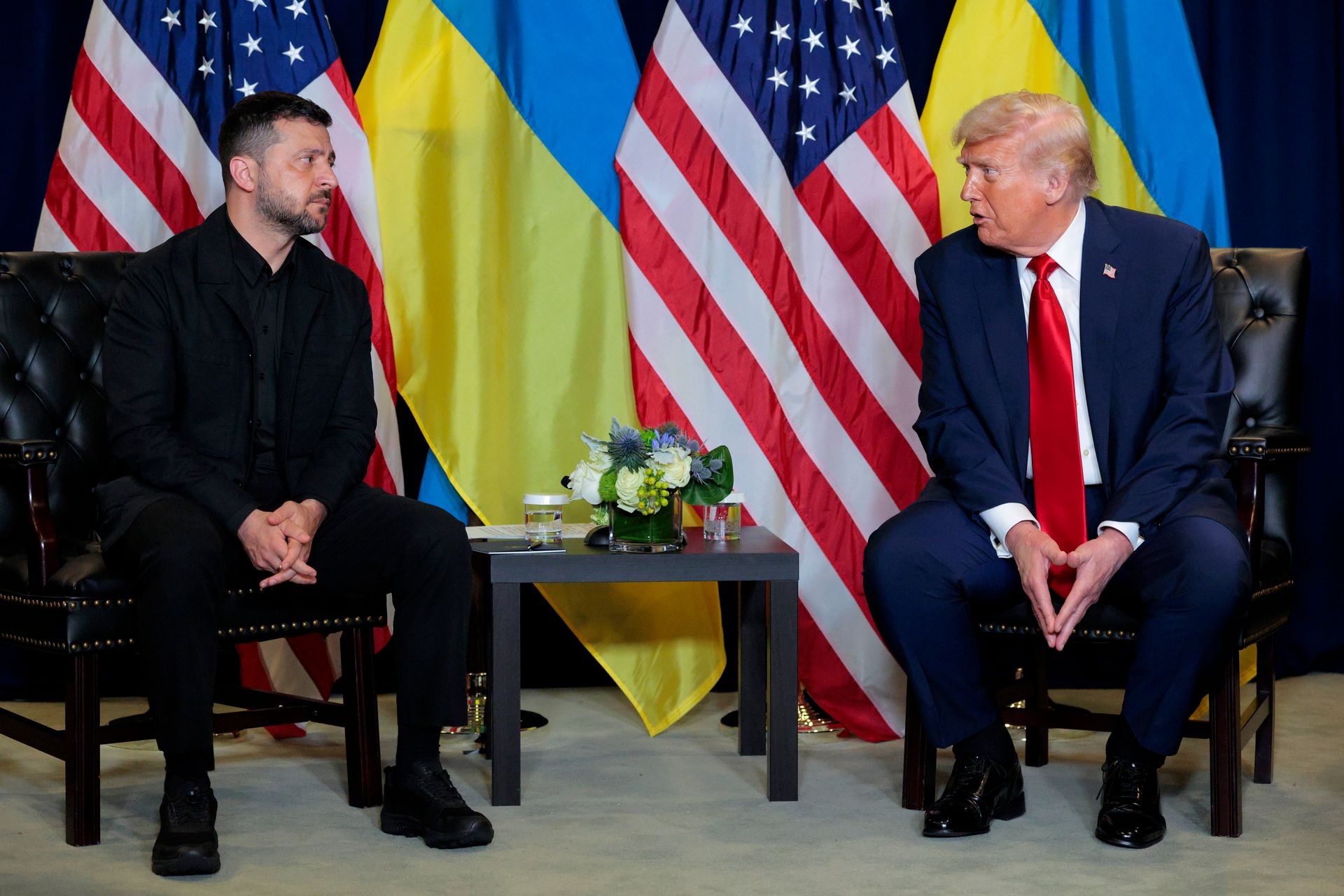EU left in the dark about Trump-Putin meeting within its borders, questions its point

U.S. President Donald Trump (R) and Hungarian Prime Minister Viktor Orbán (L), in Sharm El-Sheikh, Egypt, on Oct. 14, 2025. (Michael Kappeler / dpa / picture alliance via Getty Images)
BRUSSELS, Belgium — A general sense of skepticism prevails among European officials and diplomats over U.S. President Donald Trump's announcement of planned Ukraine peace talks with Russian leader Vladimir Putin in Hungary.
"We can only commend all efforts leading to a ceasefire and long-lasting peace in Ukraine," a EU official, speaking on conditions of anonymity, told the Kyiv Independent.
An EU diplomat noted that Washington appeared eager to capitalize on recent diplomatic moves in the Middle East.
"Clearly, the Trump administration feels momentum after the Middle East peace deal. A real peace agreement in Ukraine would be a very big result for him," the diplomat said.
Yet, diplomats in Brussels believe that Ukraine is now in a far stronger position than earlier this year, when relations between Kyiv and Washington were strained after a public Oval Office fallout between Trump and President Volodymyr Zelensky.
Ukraine, they say, is increasingly confident in its ability to withstand Russian aggression and to strike deep into Russia's oil infrastructure with drones.
"Europe has proved willing to stand by Ukraine and make clear that we cannot accept an unjust peace. Hence, the only way forward is to pressure Russia to compromise — and I think Washington knows this," the same diplomat added.
According to a source in the Ukrainian President's Office, Brussels found out that the meeting between Trump and Putin is to take place in EU territory from the U.S. president's social media.
"Trump (obviously) doesn't ask (Brussels') opinion," the source said.

Unease now lingers in EU corridors over Trump's unpredictability. Expectations are also low due to many pointing towards the fraught Alaska meeting between the U.S. and Russian leaders that had produced no tangible outcomes towards peace.
"This feels like Groundhog Day — one phone call, and all the tedious work of getting (U.S.) President Trump back on the right side is looking shaky again," another EU official quipped.
"This must be fun from the Kremlin's perspective: Whenever pressure is mounting, Putin calls as a friend to turn off the heat — no doubt it will work again," the official added.
"But next day he will bomb Ukraine like never before and continue to send his drones to wage his war against us — he is ridiculing Trump and the U.S. over and over again," a third official, also speaking on conditions of anonymity, said.
'Hungary and friends' in spotlight
Though unclear yet when the meeting is set to exactly take place, talks in Budapest would be "to see if we can bring this 'inglorious' war between Russia and Ukraine to an end," Trump wrote on social media.
Hungary's Prime Minister Viktor Orban, long positioning himself as Trump's key ally within the EU, quickly hailed the initiative that could become a significant win for his government.
Orban has meanwhile resisted Trump's calls to stop buying Russian oil.
Hungarian officials used to downplay the EU's role, arguing that the talks would give Hungary "a distinctive role within the EU by providing a diplomatic environment" for peace efforts.
Most EU diplomats expect Orban to arrive emboldened at the European Council summit in Brussels next on Oct. 23, where continued support for Ukraine will dominate the agenda.
The timing is sensitive: EU ambassadors this week failed to seal the bloc's 19th sanctions package against Russia, with Slovakia and Austria holding out for concessions.
"I am not interested in imposing more sanctions on Russia," Slovak Prime Minister Robert Fico said on Oct. 15, pledging to put the issue on the summit agenda.
In practice, while Trump's announcement did embolden the EU's Russian-friendly block, there is no certainty that the meeting would actually take place in the union's territory.
EU officials noted that exemptions to travel and flight restrictions could theoretically be granted, as in past cases when sanctioned Russian diplomats traveled to Geneva or Vienna for UN or OSCE meetings; however, no one had the time to look into this yet.
Putin has largely avoided foreign travel since the International Criminal Court (ICC) issued an arrest warrant against him for war crimes. Hungary, however, formally notified the United Nations in June of its intent to withdraw from the ICC's founding treaty by mid-2026.
If the meeting takes place this year, Hungary would still be bound by the Rome Statute, leaving Budapest to violate its obligations and raising the question of ICC's effectiveness as an institution.











